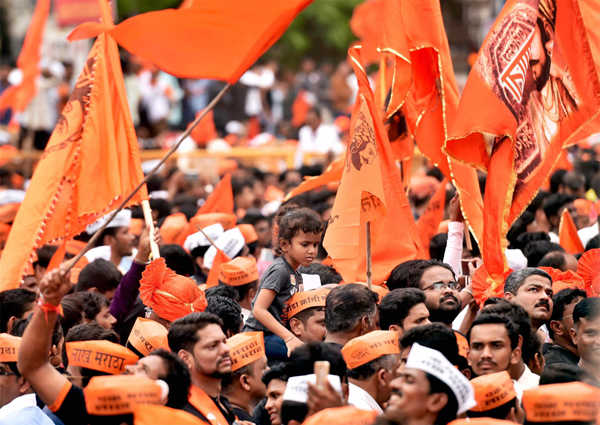
After the Jat agitation in Haryana and the Patidar protest in Gujarat, the Maratha march in Maharashtra is another demonstration of the land-owning upper castes' sense of grievance over their perceived marginalisation. There is a growing feeling among the once socially, economically and politically dominant sections of society that they are falling behind in an acquisitive culture. Rightly or wrongly, they believe that pro-reservation politics played since the Mandal agitation and pro-market policies, unleashed since 1991, have left them at a disadvantage vis-à-vis other castes. Their children resent the denial of admission in institutions of repute and see jobs being snatched from them through an unfair practice of reservation.
The increasing loss of political and economic influence has forced these once privileged sections of society to unite and come out in the streets. Since they depend largely on land, poor returns from agriculture have shrunk their incomes. Government-dictated MSPs, cutting down of subsidies and pro-consumer policies have turned agriculture into a loss-making venture. Farmer unrest is a countrywide phenomenon today, though protests and suicides are limited to a few states.
Parties across the political spectrum have over the years wooed the Scheduled Castes, the Scheduled Tribes and the backward classes with reservations in jobs and educational institutions, and this has created a sense of grievance among those who belong to a higher caste but are living at a subsistence level. It is not without reason that the protesters distrust politicians. Barring Hardik Patel in Gujarat, the movement has no recognisable face or leadership but the protest organisers in all the three states do not let politicians take the centre stage. This loss of faith in the political class stands out in almost every pro-reservation farmer agitation. The political leadership in general and that in the BJP-ruled states of Maharashtra, Gujarat and Haryana in particular has a difficult task of managing upper-caste aspirations and resentments. While the importance of affirmative action for the underprivileged cannot be ignored, political maturity is required to balance the conflicting demands and interests since social harmony is at stake. It needs to be understood that consumption-driven, jobless growth, encouraged by flawed policies, has created the situation.



























